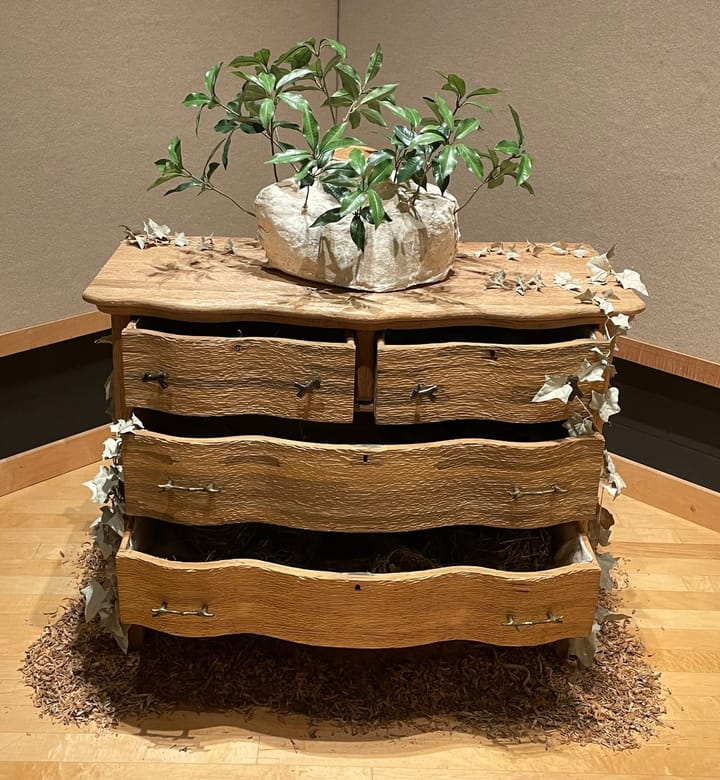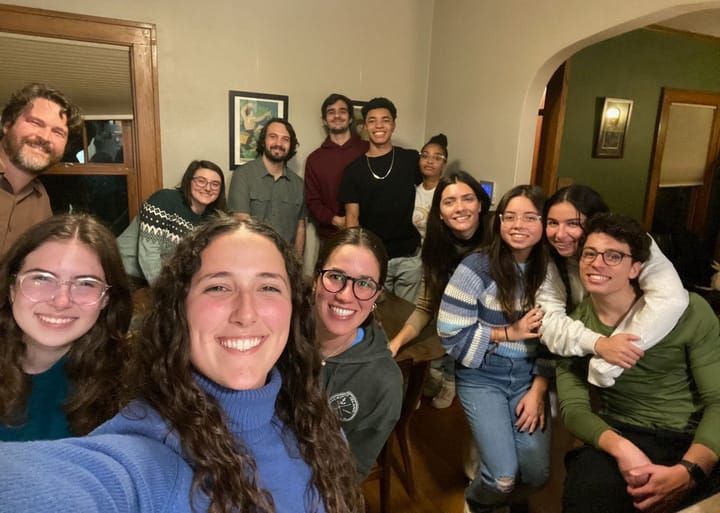Werger spreads seeds of environmental awareness to the last frontier
Since Mia Werger was young, she has had a passion for the outdoors.
“I’ve definitely always loved nature,” Werger said. “I think when I was three my parents bought me a little field guide of birds, and that was the first book I ever owned. I couldn’t even read yet, but I would just look through the pages.”
This passion is still evident today through the work Werger has done on Augustana’s campus and across the country.
The “Prairie in Progress: Pardon the Mess” signs near the Archaeology Lab, indicate some of Werger’s work. Werger designed a prairie restoration plot on campus, and recently wrote an article published in Orion Magazine detailing the plot and highlighting the prairie’s significance in the Midwest.
“A huge part of the prairie gardens is going to be hopefully just educating people in a real life way,” Mia said, “and showing them that this is what used to stretch for miles and miles all through the great plains states. And now we have less than 1% of it left.”
Augustana professor David O’Hara, who worked with Werger on the prairie restoration project, said he believes both the work they are doing and sharing that work with others as Werger did in Orion Magazine is important.
“When you learn something, if you’ve got good information, you’ve got knowledge that can help others.” O’Hara said. “You should share it with people in the ways that you know how.”
Recently, Werger’s love for nature has extended past the prairie, and into Homer, Alaska. This semester, Werger is participating in the “Semester by the Bay” program through the University of Alaska Anchorage. wWhile Werger’s semester in Alaska is like a “regular school semester in a lot of ways,” there are also research and internship components. Soon, Werger will conduct research in a nearby forest, and currently, she monitors wildlife and educates visitors at the Homer Demonstration Forest.
“A demonstration forest is like an experimental nature area, where people can try different types of forestry techniques or do studies,” Werger said, “or they can try different types of creating wildlife habitats. It’s a place for scientists and the public to play around and see what works when it comes to conservation.”
Looking toward her future, Werger envisions herself continuing her work in conservation.
“I know that I’m really passionate about natural resources conservation, about protecting wilderness and wildlife, about sustainable farming techniques and how we can grow food in a way that doesn’t destroy nature and doesn’t hurt us in the long run,” Werger said. “So, I know I’m going to be working on problems and solving problems that have to do with climate change and agriculture and conservation.”
O’Hara described Werger as the type of person who strives for goals that “a lot of people, young and old alike, look at and say, ‘wow, that’s too big.’
Notions of climate change and conservation may seem intimidating to others but not to Werger.
“Werger is not daunted by that sort of thing, I think because she sees how important it is,” O’Hara said.
Werger said she believes this important work can start on a 0.04 acre plot on Augustana’s campus.
“If anyone needs a project to get involved with or if they want to do some really cool work, they can absolutely get involved with the prairie garden and help take care of it in the coming months and years.”



